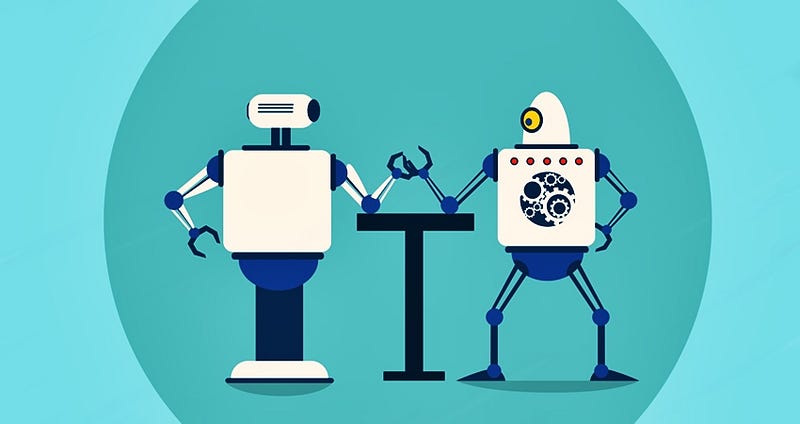
Introduction
As we venture deeper into the 21st century, artificial intelligence (AI) continues to influence numerous facets of our lives, from personalized shopping recommendations to autonomous vehicles. But one area where AI’s impact is particularly significant is job automation. By replacing repetitive, mundane tasks with automated processes, AI has revolutionized the way we work, presenting both opportunities and challenges. This comprehensive article provides an in-depth analysis of AI’s impact on job automation, offering insight into its current effects and future implications.
Understanding Job Automation
Job automation refers to the use of technology to perform tasks traditionally done by humans. This technology ranges from simple mechanization, such as assembly lines in factories, to sophisticated AI algorithms capable of complex decision-making processes.
AI’s role in job automation has grown exponentially with advancements in machine learning and natural language processing. These developments have enabled AI to automate not only manual, repetitive tasks but also cognitive tasks that require problem-solving skills and understanding of complex information.
The Impact of AI on Job Automation: An Overview
AI’s influence on job automation is multifaceted and wide-ranging. Here’s a closer look at some of the key areas:
Efficiency and Productivity
AI has significantly enhanced efficiency and productivity across many sectors. By automating repetitive tasks, AI frees up employees’ time to focus on more complex, high-value tasks that require human creativity and judgment. This shift not only increases productivity but can also lead to higher job satisfaction as employees are less likely to experience burnout from monotonous tasks.
Cost Savings
AI-driven automation can lead to substantial cost savings for businesses. By reducing the time spent on manual tasks, companies can reduce labor costs. Additionally, AI systems can often perform tasks more accurately than humans, leading to further cost savings by minimizing errors.
Job Displacement
On the flip side, AI-driven job automation has led to job displacement in certain sectors. Roles that involve repetitive tasks, particularly in manufacturing and data entry, are increasingly being automated. This development has raised concerns about job losses and increased income inequality.
The Future of AI and Job Automation: A Closer Look
As AI technology continues to advance, its impact on job automation is set to increase. Here’s what we can anticipate:
More Roles Being Automated
As AI becomes more sophisticated, it’s likely that more roles will be automated. This will not be limited to manual labor; AI is expected to take over certain cognitive tasks as well. Jobs in fields such as customer service, administration, and even writing could be affected.
AI Augmentation
While AI may automate some roles, it will augment others. AI augmentation refers to the use of AI systems to enhance human capabilities rather than replace them. For instance, AI can help doctors diagnose diseases more accurately or help teachers personalize learning for each student. In these cases, AI doesn’t replace the human role but enhances it.
New Jobs Created by AI
AI is also expected to create new jobs. As AI systems become more integral to businesses, there will be increased demand for roles such as AI specialists, data scientists, and AI ethicists. Moreover, as AI takes over mundane tasks, it could give rise to new roles that we can’t even imagine yet.
Conclusion
AI’s impact on job automation is complex and multifaceted, leading to both opportunities and challenges. While AI has the potential to displace certain jobs, it also offers possibilities for increased efficiency, cost savings, and job augmentation. Furthermore, as AI technology continues to advance, new roles are likely to emerge. The key is to adapt and prepare for these changes, ensuring that both individuals and societies can benefit from the AI-driven automation revolution.
Find more … …
VBA for Beginners – Chapter 43 : Automation or Using other applications Libraries
The Future of Work: Unraveling the Impact of AI on Job Landscape
Data, Learning, and Modeling in Machine Learning: A Comprehensive Guide